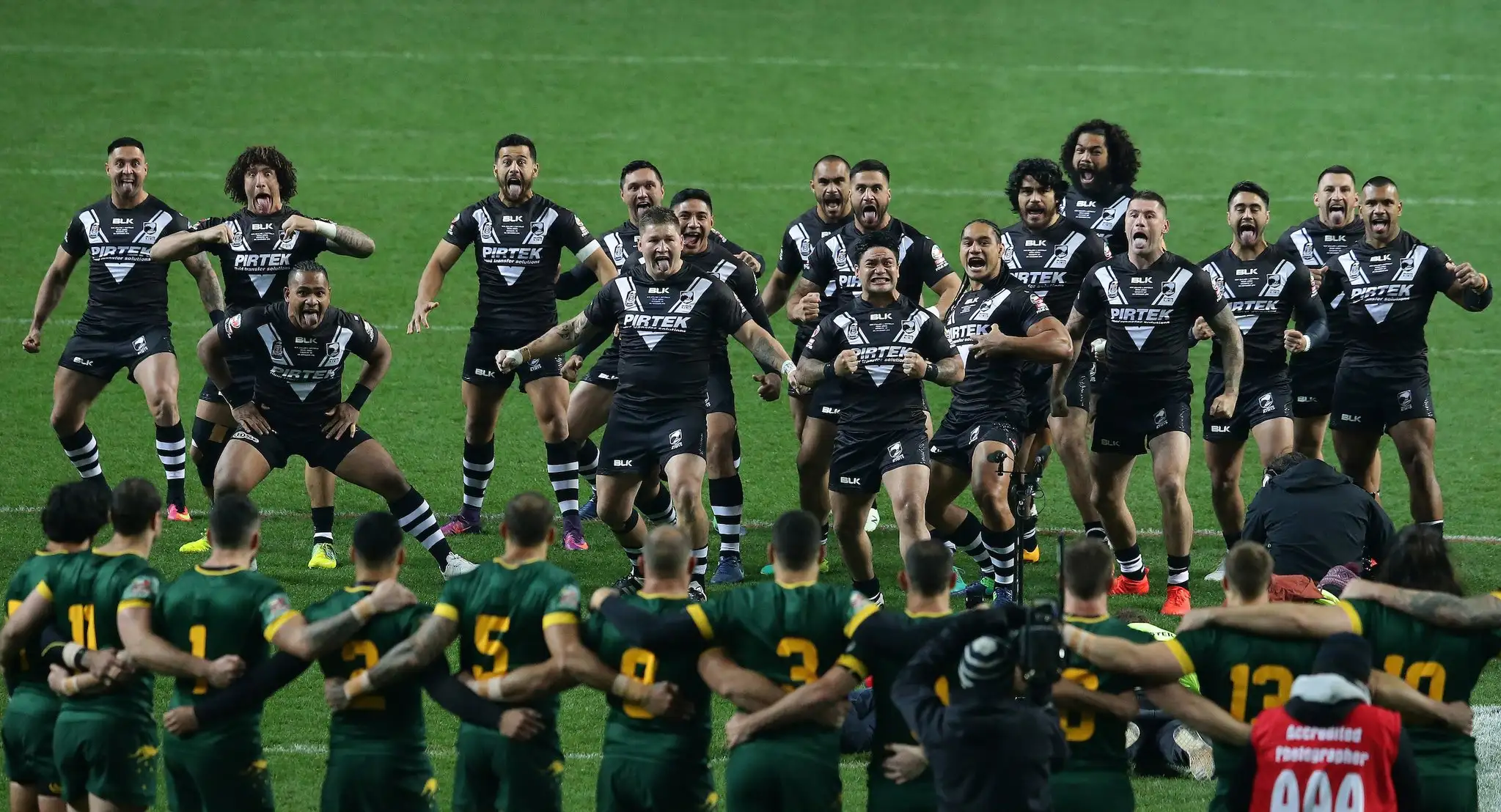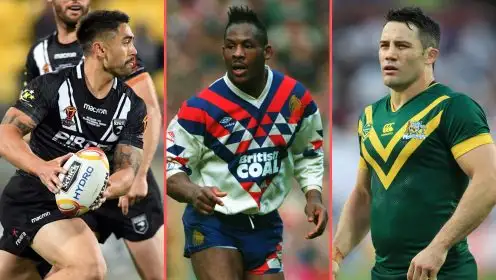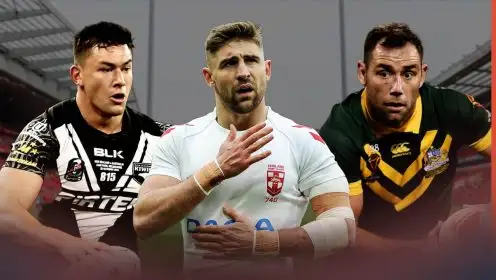Four Nations Review: New Zealand

Just over two years ago the Kiwis blew Australia away, securing consecutive victories against the Kangaroos for the first time in 63 years on the way to lifting the 2014 Four Nations title in Wellington.
Australia’s dominance of the sport was called into question even further when they surrendered the world number spot to their antipodean rivals after a comprehensive defeat in last year’s Anzac Test.
Any ideas of the Kiwis reigning supreme as the best Rugby League nation on the planet were swiftly quashed last week when Australia thrashed New Zealand 34-8 in the 2016 Four Nations final.
Defeat also meant the green and golds returning to the top of the pile in the world rankings. It was their fourth loss in a row to the Kangaroos in 2016.
Why then did the Kiwis surrender their Four Nations crown in such a humiliating manner?
One of the first factors to consider is the appointment of David Kidwell as head coach.
With just over two years under his belt as an assistant coach in the NRL it seems a massive step up to suddenly be appointed as the leading man of the national team.
If you look at the three coaches of Australia, England and Scotland ,they have all spent a number of years managing domestic clubs before eventually progressing onto bigger things.
New Zealand started slowly in every game in the Four Nations and were behind in every match except for the one against Scotland. Under Kidwell they have won just once in five fixtures.
One of the key decisions which seemed to reflect his inexperience was the six changes he made for the match against Scotland.
The Kiwis may have lost their previous match against the Kangaroos in Coventry, but a lack of consistency in the backs only served to benefit and embolden the Bravehearts.
The absence of Jason Taumalolo, who shared the 2016 Dally M winner’s medal alongside Cooper Cronk, was also a big miss in the forwards.
Kicking off the tournament in Huddersfield, New Zealand were far from convincing in their 17-16 victory against England.
The Kiwis were thankful that the hosts lacked the composure to covert a number of chances during a dominant spell in the opening quarter.
A lack of variety in attack meant that Wayne Bennett’s men were able to deal with New Zealand quite simply. Shaun Johnson missed the quality of Kieran Foran beside him.
Kidwell’s side were also helped by the fact that Johnson had a good game, the halfback scoring a try right after the break before showing the intelligence to kick for the one point which snatched the victory.
In the second match against Australia, New Zealand were guilty of beating themselves.
If they had watched the Kangaroos’ opener against Scotland they will have seen that Australia made a strong start and raced ahead on the scoreboard giving the opposition little chance of a comeback.
The same approach was employed against the Kiwis but they were given a helping hand by the amount of errors New Zealand made.
Blake Ferguson crossed over with 10 minutes gone after Kevin Proctor and Johnson conceded needless penalties moments before.
Credit where it’s due to the defensive effort by New Zealand to prevent Australia from building on a 10-0 advantage before the interval.
The Kiwis got back into the game soon after half-time thanks to some quick thinking from Solomone Kata who squeezed over out of dummy half.
New Zealand threatened to further close the gap on the scoreboard but a number of wayward kicks from Johnson relieved the pressure on the Aussies during several promising positions for the Kiwis.
The New Zealand Warriors man did inspire a late fightback with a brilliant chipped ball, which he then collected before picking out Shaun Kenny-Dowall, who sent in Jordan Rapana over in the corner.
Then he nearly set up the chance for the Kiwis to salvage a point but was held up over the line in the dying embers of the match.
After a game where the result could have gone either way attention now turned to Workington where Scotland were the next opponents.
On paper the Kiwis might have been guilty of presuming victory was a given because it was Scotland who made the better start, Lewis Tierney and Dale Ferguson squandering great chances.
New Zealand did post the first try of the match much against the run of the play but their lead lasted all of three minutes after Tierney crossed over.
The Kiwis had a slender two point lead at the break and as much as New Zealand were lethargic in attack the Scots had put in a massive defensive effort.
Kidwell will have been furious in the manner Scotland next crossed the try line, Ben Hellewell selling the dummy before easing over.
Two tries in three minutes from Gerard Beale looked to have sealed victory for New Zealand, but their inability to manage the game allowed Euan Aitken to dive over.
Danny Brough then added the extras to mark a historic night for Scotland but equally it was a frustrating and embarrassing evening for the Kiwis.
In a close run game, Issac Luke failed to adjust to the blustery conditions missing three out of four conversion attempts which could have put New Zealand out of sight.
Fortunately for the Kiwis, England didn’t get anywhere near Australia at the Olympic Stadium which meant it was a repeat of the 2014 Four Nations final at Anfield.
It was always going to be a tough assignment for New Zealand based on the ruthless efficiency of the Australians throughout the tournament, but the Kiwis were also missing the influential Tommy Leuluai in the halves.
Leuluai, who is rejoining Wigan Warriors for the 2017 season, broke his jaw in the match against Scotland which meant Kidwell was forced to use Tohu Harris as a makeshift stand-off.
The Kanagroos ruthlessly exposed Harris defending in an unfamiliar position.
Surely by now New Zealand would have learned not to gift the Aussies any opportunities early on but yet they made seven errors in the first half, most of which were followed shortly after by an Aussie try. A completion rate of 66% was also so far away from the level needed to topple the green and gold.
There was a key moment early on when the Kangaroos were only 6-0 ahead and New Zealand were in a prominent position but the final ball from Kenny-Dowall was short.
Two minutes later, Darius Boyd crossed over for Australia’s second try.
From that point it was all Australia, who through the pin-point kicking of Cronk and Jonathan Thurston, never allowed New Zealand to start a set more than 10 metres away from their own try-line.
Any hope of a Kiwis’ fightback was ended when Boyd diver over to score the first try of the second half and ensure it was the Kangaroos who would be going home with the Four Nations crown.
A pair of tries from Kahu salvaged the smallest amount of pride for New Zealand, but it is hard to look past the vast amount of points the Aussies scored in the showpiece event.
Kidwell has a lot of work to do to close the massive chasm which has seemingly opened between his side and the green and golds over the past year.
He does need to be given time to implement his ideas, which is one thing he didn’t have prior to the tournament, taking up the role just over a month before proceedings got underway.
The absence of former captain Simon Mannering, who led the Kiwis to victory in the 2008 World Cup final, and star fullback Roger Tuivasa-Sheck also had a significant impact.
Even with the New Zealand Warriors veteran back in the side, they will still have a big task on their hands next year at the World Cup.
If Australia are waiting in the final and the Kiwis progress to the last stage, they will be hoping that either Thurston, Cronk or Cameron Smith has decided to hang up his boots.
For all three to have retired would make for a more even contest, but as long as that trio is wearing the Kangaroos jersey it does seem hard to look past the Aussies retaining their crown.



